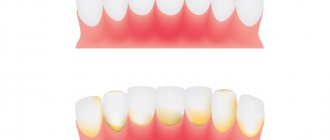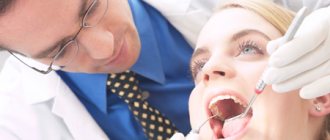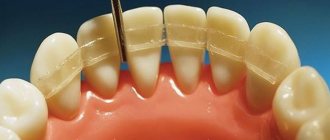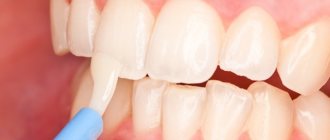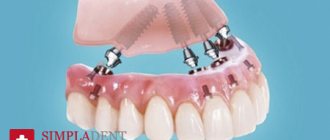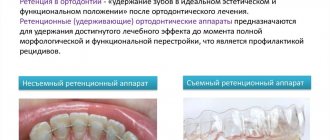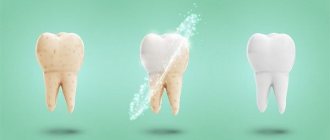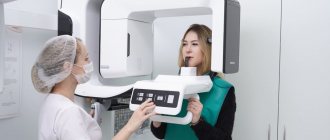In this situation, people prefer to isolate themselves from the crowd by refusing a sip of wine or beer. Others forget about taking medications for the evening, thinking that one evening does not solve anything. If you miss at least one dose, the entire result of treatment comes to naught, since the pathogen receives fertile soil for development. To defeat the bacteria, you will have to use stronger combinations, which harms the body, weakens it, making it vulnerable.
During antibacterial treatment, you are allowed to drink a glass of opinion. According to the results of laboratory studies, alcohol does not affect the use of antibiotic compounds. You should not expect any unpleasant side effects. Maintain boundaries without overusing them. Mixing treatment with alcohol is associated with the following consequences:
- Development of an allergic reaction to components containing alcohol.
- Redness of the skin, rash, increased sweating. A feeling of heat and temperature appears.
- Intoxication of the whole body. Symptoms include vomiting, convulsions, severe headache and dizziness.
- Liver dysfunction. Metabolism slows down. Recycling products cease to be excreted. The exchange is slow and atypical. This inhibits the work and function of systems, accumulates toxins and products, which affects well-being.
- Blood pressure surges.
Everyone's reaction is different based on the combination. The mechanism of action is different, so it is difficult to give a definite answer. Call a doctor at home for a consultation. Please call our 24-hour service contact number. The operator will answer, ask questions and dispatch a team that will arrive within thirty minutes within the city. After examining the patient, the doctor will describe the picture, prescribe treatment, and help get out of intoxication. Some restrictions are imposed on the patient’s usual life and diet in order to get rid of unfavorable manifestations and return to the working rhythm.
How do alcoholic drinks affect the body?
The basis of any such drink is ethanol. The difference lies in its content. For example, there is 10 times more of it in vodka than in beer. Drinking alcohol in large quantities has a negative effect on the body. No more than a tenth of the volume of ingested ethanol is excreted in the urine and then, the remaining 90% is broken down and absorbed.
Ethanol harms cell membrane lipids. Their viscosity decreases, and the receptors become insufficiently sensitive to the necessary mediators. To prevent this effect, the stomach tries to neutralize ethanol. To do this, the mucous membrane produces much more mucus than in normal digestive mode. On the one hand, this slows down the absorption of the unwanted substance, on the other hand, it causes irritation of the mucous membrane and inhibits the absorption of nutrients and other drugs.
A complex of pathologies called alcoholic liver disease cannot be excluded. When ethanol is abused, cellular degeneration develops, interfering with the normal functioning of the organ.
How do antibiotics affect the body?
It is not without reason that drugs in this group are taken only as prescribed by a doctor. The principle of their action is to destroy or suppress the growth of bacteria, all of them (both beneficial and harmful).
They attack:
• Cellular synthesis apparatus. This prevents bacteria from building protective peptide walls.
• DNA gyrase. This prevents the replication of genetic information and inhibits the proliferation of pathogenic microorganisms.
• Protein biosynthesis apparatus (ribosomes) - without it, bacteria die.
Modern pharmacology is trying to make antibiotics more selective. But their use leads to an imbalance of microflora. Beneficial bacteria, which form a kind of shield in the intestines, also suffer. Therefore, only a specialist can compare the effect of treatment with possible losses. Also, a number of antibacterial drugs have the property of hepatotoxicity. They damage liver cells, causing cholestasis (impaired bile flow) or necrosis (tissue death).
The truth about periodontitis: if you want to keep your teeth and health
The lack of competent information from the patient regarding gum disease and timely professional treatment unfortunately leads to very sad consequences - loss of teeth, and can also threaten a person’s overall health. To prevent them, we talked with the leading periodontist, therapist and surgeon at the Elite Center Clinic, Marina Mikhailovna Shakirova.
Periodontal disease is a disease of the gums and bone surrounding the tooth.
The following stages of gum disease are distinguished:
- Gingivitis is inflammation of the gums caused by plaque.
- Periodontitis is an inflammation of not only the gums, tooth ligament, but also the bone tissue surrounding the tooth.
- Mild periodontitis (I)
- Average degree of periodontitis (II)
- Severe periodontitis (III)
Tab. 1. Signs of the disease
| Gingivitis | I Art. Periodontitis | II Art. Periodontitis | III Art. Periodontitis |
| Blue-red gum color. Swelling and bleeding of the gums when brushing teeth and eating solid foods. Smell from the mouth. Pain (itching, burning) in the gums. | Bleeding gums. The space between the roots of the teeth and the gum (gum pocket). Bad breath. Sore gums. Hypersensitivity of teeth. | ||
| The depth of the gum pockets does not exceed 4-5 mm. | The depth of the gum pockets is 5-6 mm. Exposure of the tooth root. Mobility of teeth. | The depth of the gum pocket is more than 6 mm. Severe tooth mobility and exposed roots. | |
How does the disease occur? After each meal, a small amount of food debris remains on the teeth and between the teeth, which forms a soft plaque. This plaque is difficult to see; oral microorganisms immediately settle in it. Microbes and their metabolic products are deposited on the surface of the tooth and lead to gum inflammation. Gradually accumulating, plaque becomes hard, turning into tartar, which increases inflammation.
So, what every person, especially those suffering from periodontitis, needs to know:
1.100% OF DENTAL CLIENTS HAVE GUM DISEASES.
In 98-100% of patients who come to the clinic with oral problems (caries, etc.), we detect varying degrees of periodontal disease. In addition, 100% of people who smoke suffer from periodontitis!
2.PERIODONTITIS IS A MORE INSANE AND DANGEROUS DISEASE THAN DENTAL CARIES.
There can be no healthy teeth without healthy gums! The teeth may not be affected by caries, but we will lose them because the bone has left the interdental spaces.
3.PERIODONTITIS CAN SIGNAL ABOUT HIDDEN DIABETES!
Of course, the main cause of gum disease is improper and irregular oral hygiene!
BUT! You need to know that PERIODONTITIS is an autoimmune disease (autoimmune diseases are diseases associated with dysfunction of the human immune system, which begins to perceive its own tissues as foreign and damage them).
And diseases such as diabetes mellitus, diseases of the thyroid gland, adrenal glands, systemic osteoporosis, blood diseases, etc. lead to changes in the periodontium. A patient suffering from periodontitis may not even be aware of the hidden course of these diseases.
And for patients with these diseases, it is imperative to see a periodontist.
But! It is useless to treat periodontitis if the patient does not treat the underlying disease (diabetes mellitus, hormonal problems, blood diseases).
4.PERIODONTITIS CAN CAUSE ARTHRITIS, GASTRITIS AND OTHER DISEASES!!!
Periodontal pockets are a source of chronic infection. It has been proven that the long-term presence of infection in the periodontal pocket leads to the development of diseases: rheumatoid arthritis, atherosclerosis, endocarditis, gastritis, etc.
5. PERIODONTITIS MAY NOT MANIFEST FOR LONG YEARS - IT CAN ONLY BE DIAGNOSED BY A DOCTOR!
The insidiousness of the disease is that it does not manifest itself for many years. Only a doctor can make a timely diagnosis and prescribe treatment by examining the oral cavity and x-ray examination (orthopantomogram or computed tomogram (CT)). In addition, we definitely prescribe an additional examination if we see an aggressive course of the disease, exacerbation, mobility, halitosis (bad breath) and, according to X-ray data, significant loss of bone tissue.
A general examination includes blood biochemistry, a complete blood count, an analysis for latent hemoglobin, and the laboratory data obtained very often reveals latent and already progressive forms of diabetes mellitus (in young people). Very often a blood disease is detected.
“REJUVENATION” OF DISEASES – EVEN 16 YEAR OLD PEOPLE ARE SICK.
A feature of the current situation with gum disease is the “rejuvenation” of this process. If earlier this disease was detected after 45-50 years, now we can detect it at 16 and 18. This is usually associated with poor hygiene and crowded teeth. Especially if orthodontic problems are not treated. Moreover, the younger the patient, the more aggressive the course of the disease!
IF A PERSON IS SICK WITH PERIODONTITIS – IT IS FOREVER!
Periodontitis is an autoimmune disease; we can only bring it into remission and prevent further progression. A 100% cure occurs only with gingivitis (if the patient follows the recommendations).
If periodontitis is simply treated once, the effect is lost instantly. Any periodontal disease requires dynamic observation, that is, the so-called dispensary observation, supportive treatment and an invitation to attend MPT (maintenance periodontal treatment). The first examination is after 1 month, the 2nd procedure is after 3 months, then every 4 months. At the Elite Center Clinic, we keep a mandatory journal in which we record the schedule of visits the patient needs and invite him in advance.
GINGIVIT IS 100% ACCOMPANYING PREGNANCY.
Since during pregnancy, hormonal levels change, which leads to changes in the composition of plaque. It is believed that all patients with periodontitis have an increased risk of having a low-birth-weight child, and the source of infection can lead to the early development of caries in babies, and bacteria contained in the discharge from periodontal pockets can provoke miscarriage. This is a proven fact. Therefore, if pregnancy is planned, then it is necessary to undergo treatment by a periodontist and be observed by a periodontist during the 1st and last trimester of pregnancy.
SO HOW TO CORRECTLY TREAT GUM DISEASES?
Traditionally, there are 3 STAGES in periodontal treatment:
STAGE 1 OF TREATMENT:
This is the stage of PROFESSIONAL HYGIENE or otherwise – the closed curettage procedure.
Closed curettage includes:
- professional removal of plaque, tartar (using ultrasound and air-flow)
- root cleaning and polishing.
At the Elite Center Clinic, our patients also have access to the most modern hardware treatment for periodontitis, which often allows us not to proceed to the 2nd stage - surgical treatment:
1) FotoSan device (manufactured by CMS Dental, Denmark) As a result of light photoactivation, oxygen is released, which destroys pathologically altered cells and inflammatory microflora in periodontal pockets. Active oxygen acts instantly, safely, without side effects and eliminates the need for antibiotics.
2) Prozone device (W&H Dentalwerk Burmoos GmbH, Austria) In periodontics, the effectiveness of the Prozone device can hardly be overestimated, because it destroys bacteria in the gingival pocket, which are very difficult to reach, since they are in a biofilm. Bacteria become coked and live there in colonies. With Prozone, ozone penetrates into any place to be disinfected and completely destroys pathogenic microflora, minimizing the risk of re-infection.
3) Vector device (Durr Dental, Germany) The use of ultrasonic energy simultaneously with a jet of highly dispersed suspension of hydroxypatite powder allows you to remove infected granulation tissue, biofilm, plaques, and tartar. At the same time, waste products of microorganisms are washed out. This gives a powerful regenerating impulse and anti-inflammatory effect.
This same stage includes active rinsing with antiseptics and medicinal dressings. With these methods we can stop not only mild, but also moderate periodontitis!
STAGE 2 – SURGICAL TREATMENT
Classical periodontics recommends the use of surgical treatment methods if the pocket is more than 5-6 mm. But how are we doing at the Elite Center Clinic? If the use of all stage 1 treatment methods and laser technologies leads to stabilization, then we do not resort to surgical treatment. That is, if 3 months after the 1st stage of treatment the patient is not exacerbating, then we conduct a course of maintenance periodontal treatment even with a severe form, if it is in a stable phase.
But in any case, severe and aggressive periodontitis requires ONLY COMPREHENSIVE TREATMENT!!! Together with an orthopedist, together with an odontist, together with an endocrinologist, a therapist, a cardiologist.
General somatic diseases are contraindications for surgical treatment.
Before surgery, tooth mobility is prevented - the splinting method is used: we cannot operate on mobile teeth (otherwise they may take the wrong position).
Surgical treatment involves detaching the gum, cleaning the root from subgingival stone, polishing the root, filling this space with a protein-matrix complex or artificial bone, putting the flap back and suturing it. The roots are exposed.
At the Elite Center Clinic, surgical treatment is mandatory with the Emdogain protein-matrix complex.
Emdogain is a drug with a biological composition that promotes predictable restoration of both hard and soft tissues. But! It leads to an increase in bone tissue volume by only 0.5 - 1 mm. The process of bone destruction stops, but new bone does not grow. When applied to the surface of the tooth root, after cleaning it, emdogain begins to imitate biological processes, stimulating the restoration of tissue around the tooth.
Upon completion of the operation, we prescribe dressings, antibiotics, immunocorrective therapy, antihistamines, rinses, and a certain hygienic regimen.
We can carry out all periodontal treatment procedures (quite painful) for our people under sedation and anesthesia!
TAKING SOME DRUGS CAUSE PERIODONTAL DISEASE.
Periodontitis can be detected as a result of taking certain medications, they cause the phenomenon of gum overgrowth. For example: Cyclosparins, drugs that reduce blood clotting, all hormonal drugs. Patients taking hormones should definitely be seen by a periodontist.
Very often we detect periodontitis after suffering severe diseases, for the treatment of which antibiotics were taken. After this, the plaque becomes viscous and easily adheres to the surface of the teeth, which leads to aggravation.
Periodontitis is always present with orthodontic problems.
HYGIENE, HYGIENE AND MORE HYGIENE!!!
The lack of DAILY proper oral hygiene in patients with periodontitis leads to an immediate aggravation - after 12 hours the plaque is fixed and ALL treatment comes to naught.
YOU MUST REMOVE PLATE AND FOOD REMAINS EVERY 12 HOURS!!!
The patient’s task is to come for examinations not in a state of exacerbation, but in a state of remission to a maintenance complex, because each episode of exacerbation leads to loss of bone tissue. We must not allow this to worsen!
During the appointment, we select individually for our patients, based on the indications: what toothpaste should be, what brush, what rinse, in what mode to use, when to replace, what medications to take.
When a patient is sick with acute respiratory infections, acute respiratory viral infections, influenza and other diseases of the upper respiratory tract, the viscosity of saliva increases and local corrective immune factors decrease (their level decreases in the oral cavity). This leads to the fixation of a more sticky plaque. Therefore, after almost all acute respiratory infections and acute respiratory viral infections, we note an exacerbation of processes in patients. During illness, hygiene should be increased. After (during) an illness, you should contact your doctor for corrections in the treatment program (changes in the cleaning regimen are possible, additional antiseptics are prescribed), and additional professional cleaning.
PROSTHETICS AND IMPLANTATION FOR PERIODONTITIS
It is mandatory to undergo periodontal treatment before prosthetics and implantation. Implantation for periodontitis - can be carried out only when periodontitis is in a stable phase; there should be no presence of supra- and subgingival deposits.
BE HEALTHY AND VISIT YOUR DENTIST ON TIME - THIS IS A GUARANTEE OF A HEALTHY AND BEAUTIFUL SMILE!
Sign up online
Registration Online
Can I drink alcohol while taking antibiotics?
We have found that alcohol and antibiotics have a hepatotoxic effect. It turns out that if you combine them, the attack on liver cells will intensify many times over. This is the first reason why you should not drink alcohol during antibacterial therapy. But there are others.
A small portion of beer or wine will not destroy the liver. However, it is sufficient to activate the protective reaction of the gastric mucosa. Medicines will not be properly absorbed under such conditions. When antibiotics interact even with weak alcohol, the effect of antibacterial therapy will be minimal, if not zero. Therefore, it is better not to allow such a combination.
What drugs are dangerous to combine with alcohol?
You should not combine painkillers, antidepressants, muscle relaxants, antihypertensives, neuroleptics, diuretics, antipyretics, cardiovascular drugs, anticoagulants, ibuprofen and drugs based on it, antihistamines and sleeping pills and oral contraceptives with alcohol. In each case, the unwanted side effects will be different, and sometimes quite dangerous.
Finally, we note: to avoid problems with antibiotics, carefully read the instructions. And, of course, you should not decide to take antibiotics on your own. They should be prescribed to you by your attending physician. Self-medication is fraught with serious health problems.
Which antibiotics are best not to combine with alcohol?
Antibacterial drugs form a fairly large pharmacological group. The drugs included in it have varying degrees of activity. Therefore, the use of some together with alcohol is undesirable, while others are not prohibited.
The first include antibiotics that have a high hepatotoxic effect:
• amoxicillin;
• flucloxacillin;
• erythromycin;
• sulfamethoxazole;
• gatifloxacin.
There are different points of view on the interaction of ethanol with tetracyclines. Some believe that with this combination the medicine is neutralized, others believe that it enhances the negative effect on the liver.
Some antibacterial drugs should not be taken with alcohol due to possible side effects. This is especially true for metronidazole.
What medications are strictly prohibited from taking alcohol?
There are several specific antibiotics that directly interact with ethyl alcohol. Drinking any amount of alcohol is strictly prohibited during treatment with drugs from the list.
- Metronidazole: An antimicrobial agent most often prescribed to treat dental and vaginal infections. Metronidazole is added to external products intended for cleaning trophic ulcers and treating deep bedsores.
- Tinidazole: An antibiotic designed to fight simple infections. Included in drugs aimed at combating Helicobacter pylori.
- Cycloserine: prescribed for the treatment of tuberculosis, lung infections. In combination with ethyl alcohol it causes convulsions.
- Linezolid: Used to treat skin infections and is effective against bacteria that are resistant to other types of antibiotics.
Alcohol in combination with the above drugs provokes a sharp increase in blood pressure, headaches, and drowsiness. It must be remembered that side effects occur even if the antibacterial agent is used in the format of an external cream or gel.
Consequences of drinking alcohol with antibiotics
If a person does not abuse alcohol, he will not feel any effect on the liver from a single combination of an antibiotic and ethanol. However, reactions may follow from other systems:
• Digestive. Stomach pain is due to irritation of the mucous membrane, and excess mucus secretion can cause diarrhea.
• Nervous. Antibiotics themselves have a detrimental effect on neurons. When interacting with ethanol, which excites the nervous system, convulsions are possible.
• Cardiovascular. Fluoroquinolones increase the risk of impaired blood flow, which increases stress on the heart. And every additional portion of beer or wine (not to mention stronger drinks) multiplies this load.
Allergy sufferers are generally prohibited from mixing any medications with alcohol, as the body's reaction can be unpredictable. Even a doctor cannot always predict the outcome.
How soon can you drink alcohol after taking antibiotics?
There is a list of drugs that are allowed to be drunk with alcoholic cocktails. Among them are:
- Antifungal components. They do not enter into synthesis and do not retain harmful poisons.
- Penicillins are a broad-spectrum medicine that fights all unpleasant manifestations.
- Heliomycin - used against infectious dermatitis.
Joint use does not cause harm. We should not forget about the characteristics of each person. Do not drink alcohol for three days after completing the course. The instructions provide more detailed recommendations for each mixture.
According to doctors and scientists, the active agent remains in the blood for three days. For some, the decay period reaches two weeks. Consult your doctor first to avoid any side effects. Read the instructions carefully. It contains the following information:
- Duration of therapeutic action.
- Compatible with others.
- The time during which it is better to abstain from drinks.
If the described values are missing, intoxication can be avoided. The body is weakened during illness. He does not accept therapy if it is approached incorrectly. He is not strong enough to fight the toxins. Hops neutralizes the pharmacological effect. As a result, therapy and recovery will not bear fruit.
It is recommended to wait a day to start a course of antibiotics after drinking alcohol. It is advisable to maintain a longer interval to achieve a restorative result. If there was a long binge, you will have to wait a longer period. Contact your doctor for advice, prescription, course recommendations.
Antibiotics are useful for many diseases because they help fight bacteria and infections. Therapy is influenced by various factors, such as alcohol intake. During the recovery period, it is better to give up alcohol in order to quickly return to normal and nourish the body with useful substances.
Author of the article: Yakovlev Evgeniy Anatolyevich
Narcologist, Candidate of Medical Sciences.
Why shouldn't you drink alcohol while taking antibiotics?
We found that the main reasons are the danger to the liver and the possibility of side effects. But patients often ask the question: does the intensity of the drug’s action change under the influence of ethanol?
Overall it is decreasing. While the body resists the absorption of alcohol components, it unconsciously protects itself from medications. The stronger the alcoholic drink, the less likely it is that the medicine will be completely absorbed.
If you combine ethanol with metronidazole, a synergistic effect occurs. However, it concerns not the effect of the drug itself, but its side effects:
• drowsiness;
• concentration disorders;
• heart rhythm disturbances;
• nausea;
• headache.
There are also questions about a possible overdose. There is no need to be afraid of it - there is no alcohol in antibacterial drugs. Such assumptions arise due to inattentive study of the composition of drugs.
When can you take antibiotics after drinking alcohol?
Antibiotic therapy is often prescribed for exacerbation of diseases. Should I stop taking the medicine if I have alcohol in my body? The final decision is made by the doctor, based on the medical history and health status of the patient. If the benefits of antibiotic therapy outweigh the potential threats, then the first injection is given without taking into account the time that has passed since the last time you drank alcohol. If the underlying disease does not directly threaten the patient’s life, then the start of a course of antibiotic therapy is postponed until ethanol is completely removed from the body. The exact timing depends on the type and amount of alcohol consumed.
Doctors categorically do not recommend giving antibiotics to people who are acutely intoxicated. In a person who drinks large amounts of alcohol over a short period of time, liver enzymes are inhibited. This means that the medicine will not be able to be metabolized. The amount of active substance in the blood will increase. The risk of side effects will increase.
If antibiotic therapy is required for a person who has been abusing alcohol for a long period of time, a blood test will be performed first. The liver enzymes of chronic alcoholics break down medications too intensively. As a result, the concentration of active components in the blood decreases. It is necessary to review the dosage of the prescribed drug and conduct a test for resistance to antibacterial agents.
How to avoid unwanted consequences?
The simplest solution is not to mix the substances. The course of antibacterial therapy does not last long, so you can be patient and not touch alcoholic beverages. However, a bacterial infection can strike at the most unexpected moment, for example, on the eve of a wedding or anniversary. In such a situation it is important:
• Consult your doctor about the compatibility of the prescribed drug with alcohol.
• Even in the absence of contraindications, do not abuse it - limit yourself to 1-2 glasses of a weak drink.
• If there are restrictions, do not violate them.
• Wait between the last dose of the medicine and drinking alcohol for at least two days (preferably three).
There is no need to interrupt your course of antibiotics for an alcoholic party. This will negate all achieved results and you will have to start treatment again. It turns out that during the first course of therapy the microflora suffered in vain, and with the second course it will be exposed to an unnecessary threat.
What antibiotics are safe to drink alcohol with?
It is better to completely abstain from drinking alcohol during illness. However, medications from the list below do not have a negative interaction with alcohol:
- amoxicillin;
- azithromycin;
- ciprofloxacin;
- cephalexin;
- clarithromycin;
- clindamycin;
- levofloxacin;
- penicillin.
Antibiotics of the tetracycline group, including Doxycycline, have little interaction with alcohol. There is no need to worry about the development of a disulfiram-like reaction. However, ethyl alcohol significantly reduces the amount of tetracyclines in the blood. You must tell your doctor about the amount of alcohol you drink. The specialist will recalculate the dosage of medications and change the duration of the course of therapy.
Even if the doctor prescribes an antibiotic compatible with alcohol, it is necessary to take the treatment process responsibly. Any infection weakens the body, and the entry of ethyl alcohol into the blood will only worsen the resistance of the immune system.
Instead of strong drinks, it is better to drink clean water, eat right and get plenty of sleep. Alcohol interferes with the body's ability to absorb vital nutrients and increases blood sugar levels. And chronic alcoholism will even provoke constant relapses of infectious diseases, the development of multiresistance, bacterial resistance to all known types of antibiotics.
